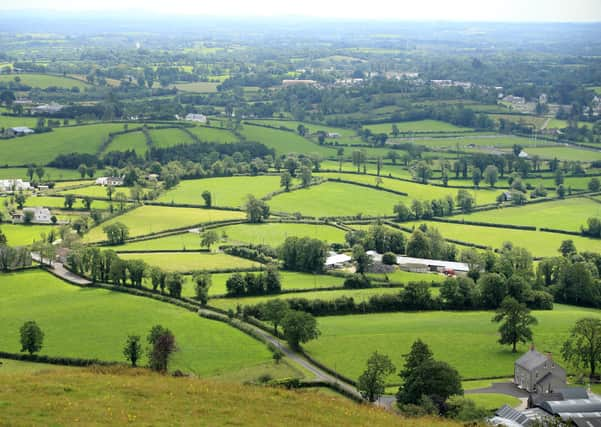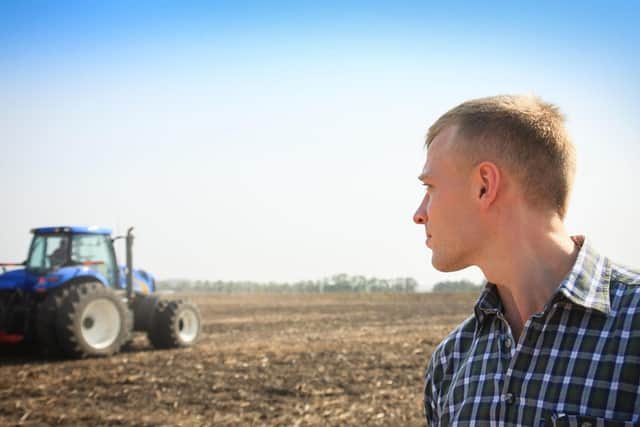Can the family farm survive?


The most obvious follow on from this is to look forward and try to ascertain what’s coming down the track.
For me, the future for agriculture in Northern Ireland can be most easily addressed by trying to answer the following – very simple – question: can the family farm survive?
Advertisement
Advertisement
Physics tells us that every structure has a breaking point. Finding it is simply a matter of applying sufficient pressure to the system. The family farm structure has served Northern Ireland over many years. The principles involved are very simple: everyone joins in for the betterment of the family and the future of the farm.


But such an approach can only be taken so far. I have long held to the view that food retailers and, up to a point, processors have taken advantage of the innate flexibility built into the family approach to farming.
However, I strongly hold to the view that the fortunes of all these businesses have been ransomed at the altar of cheap food policies put in place by successive governments in London and EU administrations operating from Brussels.
Cheap food is a vote winner. But it’s an approach that does farmers no good at all if primary producers are not adequately supported.
Advertisement
Advertisement
And this is the scenario that has unfolded over the last number of years. Farmgate prices have failed to keep pace with inflation. If this had been so, dairy farmers would be getting 40 pence plus per litre for their milk right now and beef farmers would be getting up to £6.50 deadweight for their cattle.
Meanwhile the value of farm support budgets has declined dramatically over the past two decades. Back in 205 the EU, in its ‘infinite wisdom’, capped all its agri budgets.
The end result has been an ever tightening squeeze on farm margins. To say that farming families have been caught between a rock and a hard place would be an understatement of gargantuan proportions.
Just look at where we are today. Farm debt levels continue to rise, leading to ever increasing stress levels across all our rural areas. Back in the day there was an accepted rule of thumb that selling the stock on a farm would cover any level of debt that might be incurred. Today, selling the stock and all the land would hardly get some farmers out of the debt traps they now find themselves in.
Advertisement
Advertisement
So how do we protect Northern Ireland’s family farms moving forward? In my opinion, delivering realistic farmgate prices is the first step in the journey that must be undertaken.
I totally agree with the principles enshrined within the draft Farm Welfare Bill recently introduced at Stormont by Patsy McGlone MLA on behalf of Northern Ireland Farm Groups. I totally buy into the need for farmgate prices to reflect the genuine costs incurred by farmers and, moreover, to provide them with an additional margin that allows them to live and to further invest in their businesses.
But one very fundamental point has not been addressed by the proposed legislation. And it’s this: what is the fundamental starting point to the process envisaged in the bill. If thy use 2021 prices as a starting point, then farmer prices will always be out of kilter with the real world.
The way round this issue is for government to appoint an independent commissioner, who would be given the job of establishing baseline prices in 2021 that would provide family farms with an opportunity to develop a sustainable future.
Advertisement
Advertisement
For the record, such an approach is feasible. I was totally against Brexit, but now that we have left the EU, we should take full advantage of the policy development freedoms now available to us.
For example, the government in London can put in place food pricing and support policies that best meet the bespoke needs of the UK.
To be honest I get very tired of farmers telling me that consumers will not stand for food price increases in the shops. I disagree completely. All the evidence strongly suggests that consumers here are more than happy to support farming families. And, if this means paying a bit more for food in the shops, so be it.
What’s more, local consumers are very much against food produced in ‘factory-like’ conditions. The same principle holds where most imported foods are concerned.
Advertisement
Advertisement
Providing farmers with guaranteed prices is not new. It was an approach espoused by the British government during and after World War 2 in order to encourage indigenous food production. Seventy five years later, we find ourselves, once again, in a time of crisis. This time around, it’s not war but a pandemic that is serving to alter our lives in such a fundamental manner.
One of the upsides to Covid has been the growing public recognition that home grown food is important. It’s worth noting that very early on in the pandemic, farmers were officially recognised as essential workers.
We are told that individual consumers as family groups are re-discovering the pleasures of cooking at home. And long may this continue. Throw in the growing concerns associated with global warming and one starts to get a sense of the growing public recognition that having a vibrant farming industry on their doorsteps is a priority for society, across the board, as we look to the future.
But if we put the rhetoric to one side and stick to the basics of the argument, the reality is that everyone deserves a pay rise: so why should be farmers be treated any differently in this regard?
Advertisement
Advertisement
Ulster Farmers’ Union (UFU) president Victor Chestnutt makes no secret of his concern that future governments in London may drastically reduce the amount of exchequer-funded support made available to agriculture. In truth, this issue would fall down the pecking order of importance significantly, if a realistic deal was thrashed out on retail and farmgate prices.
One thing, above all else, must be made extremely clear in the context of any discussion on the future shape of farming in Northern Ireland. We don’t do cheap food here. But we do produce food of the highest quality.
However, if we assume that farming will need to be supported into the future, then the ground rules need to be changed drastically. First off, only those people who actively produce food should be made eligible for support.
The current definition of what constitutes an ‘active farmer’ has more holes in it than a sieve. There is also a fundamental requirement for our policy makers to look at both ends of the age spectrum, where agriculture is concerned.
Advertisement
Advertisement
Young farmers must be adequately supported if they commit to a full time future in production agriculture. There is also a need, in equal measure, to provide realistic retirement options to encourage older farmers to retire from the industry. Farm Minister Edwin Poots has eluded to both these age-related issues in a very positive manner over recent weeks. I hope that these encouraging sentiments will be translated into meaningful policies during the period ahead.
I know that succession is a very sensitive subject amongst many farming families. So what to do in cases when no member of the next generation wants to take on the running of the business? In situations like this every step must be taken to ensure that the families involved are actively encouraged to recognise the needs of young people who do want to have a sustainable future within our farming industry.
I sense that most sensible people would agree with the principle that lies behind this sentiment. But fine words count for nothing when retiring landowners have the simple out of letting their land for conacre each year.
One way round this would be to take a carrot and stick approach. Older landowners, without an active successor would, within reason, be encouraged to enter into an officially authorised land mobility arrangement with a young farmer. Failure to commit to such an approach would render the lands involved ineligible for the Inheritance Tax reliefs that are currently available on farm land.
Advertisement
Advertisement
Ensuring that farmers can access prices that will allow them secure a living for themselves should be regarded as part of a process. Other challenges abound on farms throughout Northern Ireland.
Putting in a forty-hour working week is an unknown concept for many local farmers. Animals must be tended to every day of every week of every year. Given this level of commitment, the hours soon mount up.
Given this background, stress is an issue on many farms today. Farming families must be given the opportunity to balance their working lives with the absolute need to have adequate time for themselves. This is going to sound very trite but as the old saying goes: all work and no play makes Jack a dull boy.
So what’s the answer? Working smarter, not harder is the principle that immediately comes to mind in this context.
Advertisement
Advertisement
I recall being in the Netherlands two years ago, where I had the opportunity of visiting a family milking 100 cows. The father and two of his sons were all fully employed within the business.
To say that technology was their friend would be an understatement. The cows were milked and fed robotically while the sheds were cleaned on the hour every hour courtesy of robotic scraping system. Silage was made six times a year using a local contractor
Saturday was the busiest day of the week on the farm. This was when all the silage required by the cows for the coming week was taken from the pit using a front end loader and placed in a ‘kitchen’ area at the end of the cubicle house. The robotic feeding system took over from there.
Heat detection was fully automated with a local AI company inseminating cows, as and when required. The real hard work for the family, if you could call it that, centred on the rearing of their calves, feeding replacement heifers and cleaning cubicle beds with a very fancy ride-on machine.
Advertisement
Advertisement
For the record, the scope of the facilities on the farm was only referenced in passing by the host. His focus was on the need to secure better, real time information on the cows within the herd.
Given the direction of travel taken by the conversation entered into that day, I quickly worked out that the need to have a proper work: life balance was regarded as a fundamental right by all the members of the host family. In no way did they regard themselves as being privileged.
All of this was made possible on the back of a realistic milk price.
And I see no reason why such an approach to farming cannot be replicated here in Northern Ireland. And it could be, if sustainable farmgate returns became a reality!